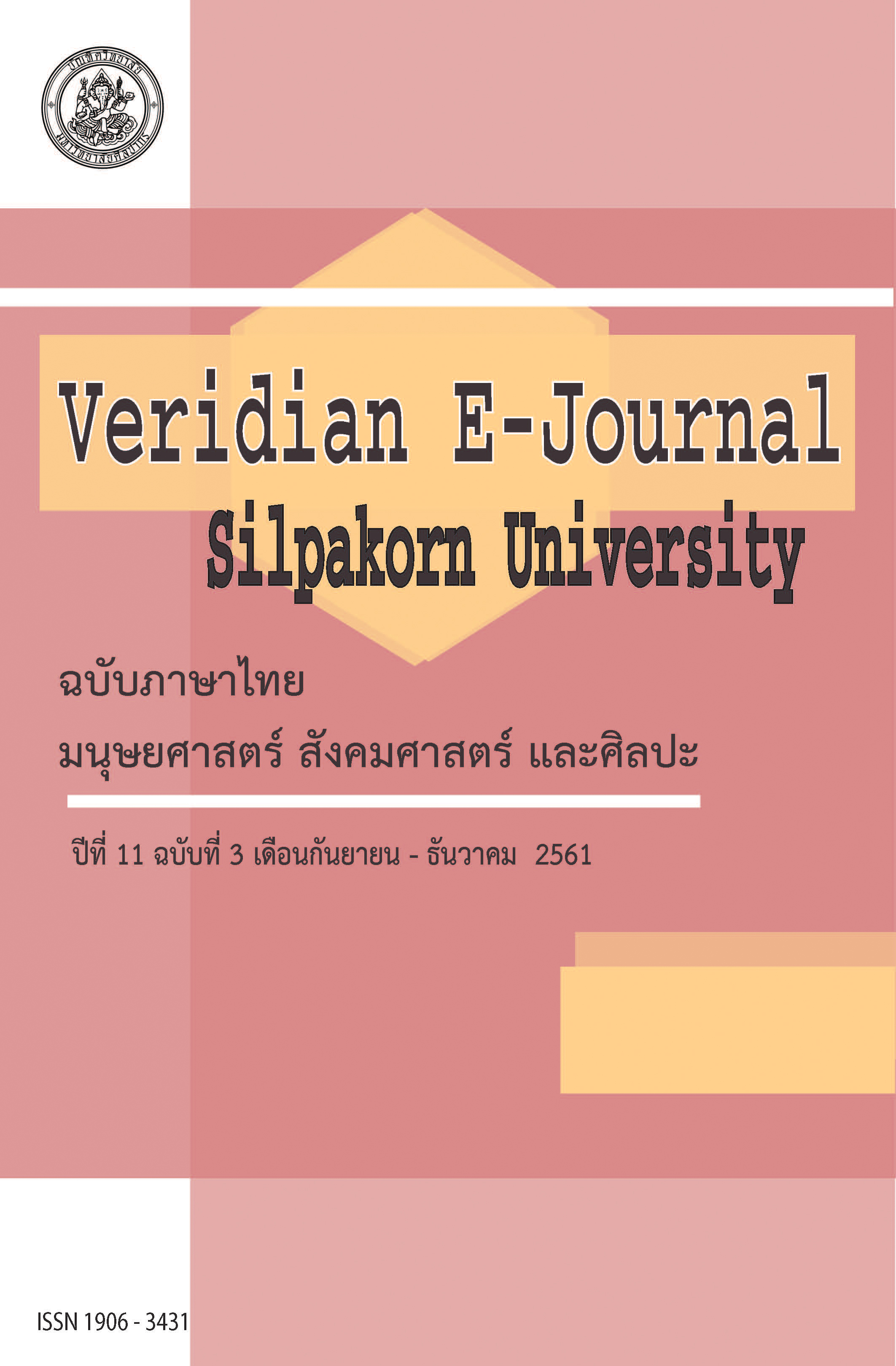อิทธิพลของบุคลิกภาพแบบหลงตนเองแบบเอเจนซีและคอมมูเนียน ต่อความสุขเชิง อัตวิสัย ในวัฒนธรรมแบบคติรวมหมู่ : อิทธิพลส่งผ่านของคุณภาพของมิตรภาพ และความพึงพอใจในความสัมพันธ์ (Effects of agentic and communal narcissism on subjective well-being in a collectivistic culture: The mediating roles of friendship quality and relationship satisfaction)
Main Article Content
Abstract
แม้งานวิจัยในอดีตระบุว่า ผู้ที่มีบุคลิกภาพแบบหลงตนเองมักให้ความสนใจแต่ตนเองเป็นหลัก หรือที่เรียกว่า บุคลิกภาพแบบหลงตนเองแบบเอเจนซี แต่งานวิจัยในระยะหลังเสนอว่า ผู้ที่มีบุคลิกภาพแบบหลงตนเองยังอาจใช้กลยุทธ์แบบมุ่งผู้อื่นได้ หรือที่เรียกว่า บุคลิกภาพแบบหลงตนเองแบบคอมมูเนียน งานวิจัยชิ้นนี้จึงมุ่งทดสอบอิทธิพลของบุคลิกภาพแบบหลงตนเองทั้งสองประเภท ต่อความสุขเชิงอัตวิสัย ซึ่งถือเป็นดัชนีที่สะท้อนการปรับตัว โดยมีข้อสันนิษฐานว่า คุณภาพของมิตรภาพและความพึงพอใจในความสัมพันธ์อาจเป็นกลไกสำคัญต่อความสุขของบุคคลในวัฒธรรมแบบคติรวมหมู่ เช่น ประเทศไทย การศึกษาในครั้งนี้ใช้ระเบียบวิธีวิจัยเชิงสหสัมพันธ์ ด้วยการสุ่มกลุ่มตัวอย่างตามความสะดวก โดยใช้แบบสอบถามออนไลน์ เพื่อประเมินบุคลิกภาพแบบหลงตนเองแบบเอเจนซี บุคลิกภาพแบบหลงตนเองแบบคอมมูเนียน คุณภาพของมิตรภาพ ความพึงพอใจในความสัมพันธ์ และความสุขเชิงอัตวิสัย กลุ่มตัวอย่างที่ใช้ในการวิจัย ได้แก่ ชาวไทย อายุระหว่าง 18-30 ปี จำนวน 187 คน ผลการวิเคราะห์พบว่า บุคลิกภาพแบบหลงตนเองแบบคอมมูเนียน สามารถทำนายความสุขเชิงอัตวิสัยได้ในทางบวก ขณะที่บุคลิกภาพแบบหลงตนเองแบบเอเจนซี สามารถทำนายความสุขเชิงอัตวิสัยได้ในทางลบ โดยความสัมพันธ์ดังกล่าว ได้รับอิทธิพลส่งผ่านจากคุณภาพของมิตรภาพ และความพึงพอใจในความสัมพันธ์ นำไปสู่ข้อสรุปที่ว่า ผู้ที่มีบุคลิกภาพแบบหลงตนเองแบบคอมมูเนียน อาจได้เปรียบในเชิงของการปรับตัวมากกว่า ผู้ที่มีบุคลิกภาพแบบหลงตนเองแบบเอเจนซี ในสังคมไทย เนื่องจากกลยุทธ์ที่ใช้ในการแสวงหาคำชมเชย สอดคล้องกับค่านิยมทางวัฒนธรรม
Even though prior research suggested that narcissists adopt agentic strategies for goal pursuit, later research proposed that narcissists might utilize communal strategies for satisfying their personal needs. The current study, thus, attempted to examine the effects of agentic and communal narcissism on subjective well-being in Thailand, a highly collectivistic country. In particular, it was expected that friendship quality and relationship satisfaction might play roles in mediating such effects. Using a non-experimental research design with a convenience sampling, 187 Thai participants completed a set of online questionnaires to assess agentic narcissism, communal narcissism, friendship quality, relationship satisfaction, and subjective well-being. Results showed that communal narcissism positively affected subjective well-being, whereas agentic narcissism negatively affected such indicator of adaptation, with friendship quality and relationship satisfaction as important mediators. Findings from this study shed new light that communal narcissists may be more adaptable in a collectivistic culture such as Thailand, partly because their strategies for elevating their self-esteem and social status are in line with cultural values.

